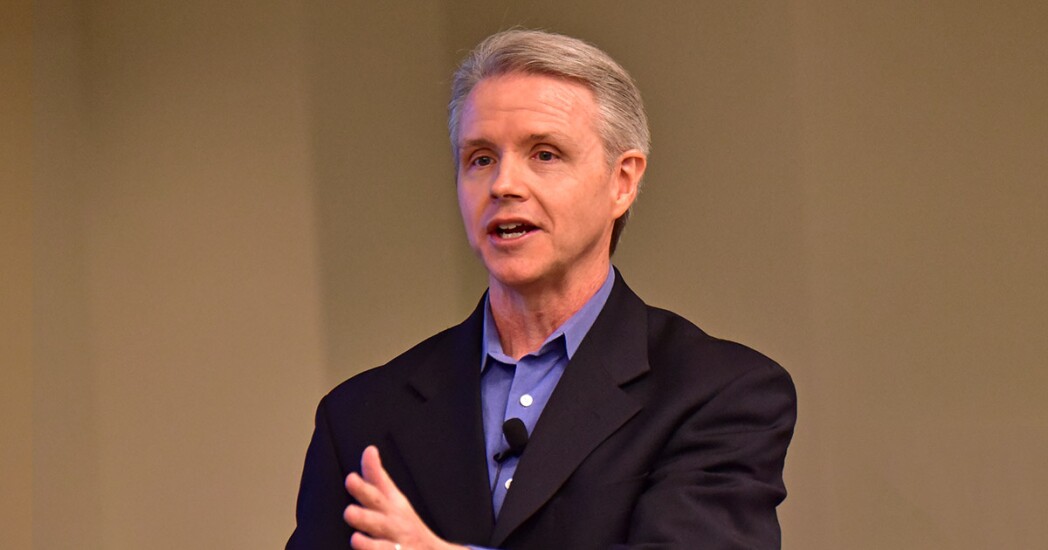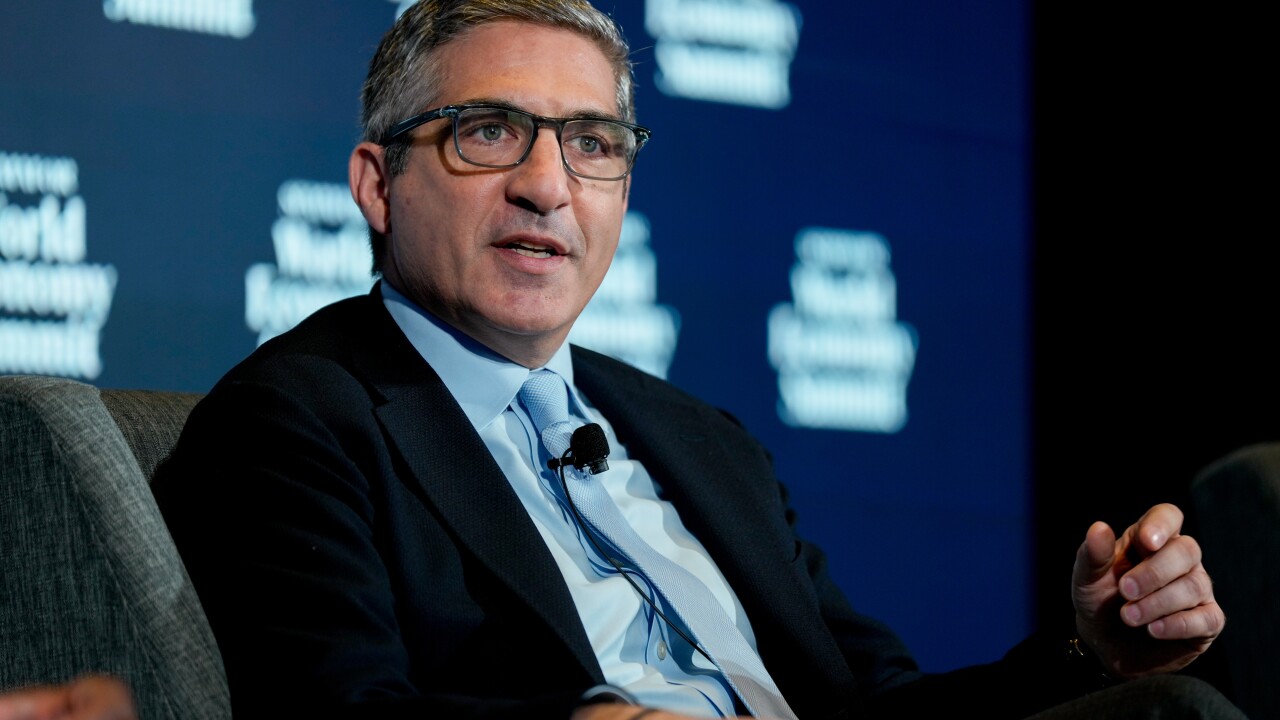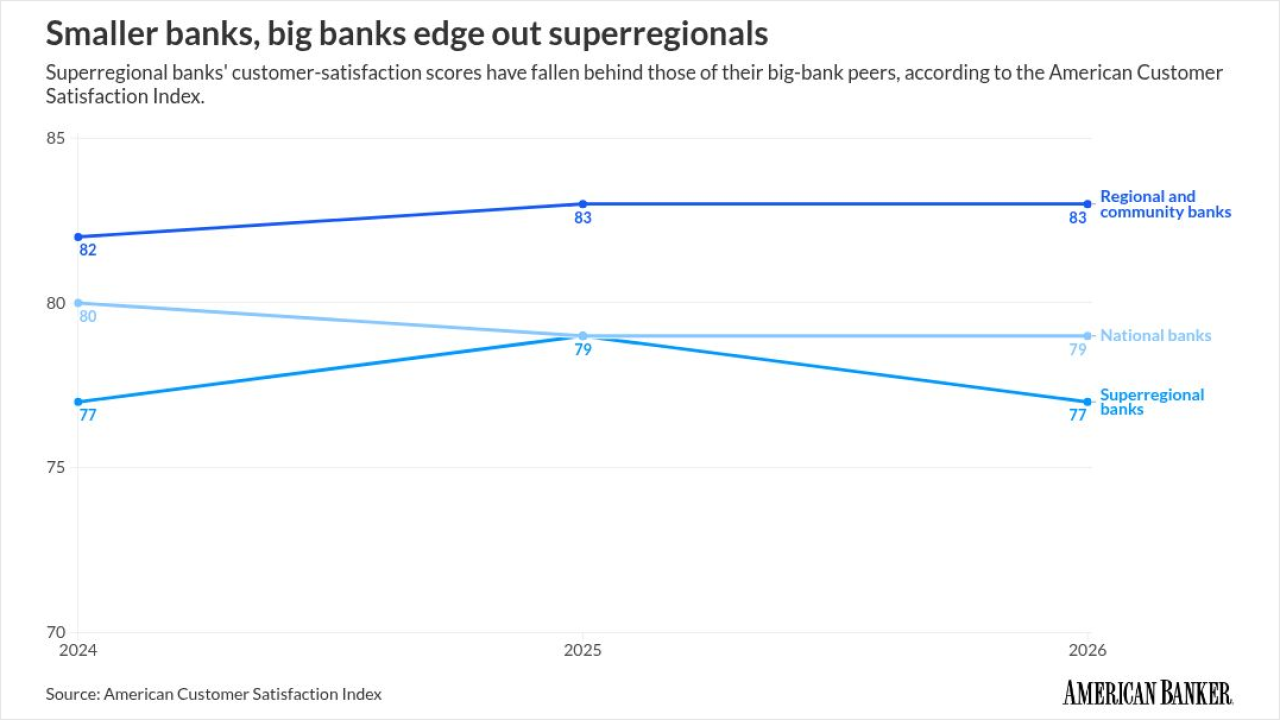
Focusing on employees
A look at previous coverage from ACUC 2019 can be found

Get rid of transactions and cue the interactions
James reminded credit unions that the changes in customer experience create a new opportunity for organizations to step in.
“If you have a bad experience, you can dent a business in 140 characters or less,” James said, “and that’s driving a lot of customer opinions today.”
Disney’s path to success starts with prioritizing its own people, according to James, noting that Disney refers to its employees as cast members. This is because if an organization invests in its own people and makes sure employees are taken care of, that staff will return better and more engaged service.
Disney’s consistent demand is driven by this strategic focus, one that other companies often fail to see value and potential. That means Disney pays attention to every single detail, he said. And although that may seem overwhelming for some institutions, starting with employees and working to strengthen interactions can pay dividends.
And that word, ‘interaction’, is intentional. In fact, James said that if he could "wave a magic wand" and get rid of the word "transaction" forever, he would. Instead of engaging in transactions, a common occurrence in the financial services industry, James urged CUs to have interactions with members.
“So in your world, the auto loan is just the widget and [members] are going to focus on the interaction versus the actual loan itself,” James explained. “What they’re comparing to you at your credit union is that meal at Logan’s, that overnight stay at a hotel, that experience they had with Amazon or Walmart.com”

Focus on succession planning
In a time where credit union membership is at an all-time high and the number of institutions at an all-time low, it’s imperative that CUs get creative in their C-Suite recruitment strategies.
“Almost 10% of credit union CEOs plan to or are expected to retire within two years; that’s 500 CEOs,” said Andy Roquet, senior executive benefits specialist at CUNA Mutual Group.
To prevent credit unions from facing this challenge unprepared, Roquet recommended that CUs and their boards start looking into a succession strategy, which starts with a strong company culture and competitive compensation. Enhancing executive compensation plans to meet the needs of top talent can keep employees around for longer while also fostering a healthy work environment, he noted. In fact, skimping on an executive’s compensation, or any employee’s paycheck for that matter, may prove detrimental if another institution offers a more competitive rate in hopes of poaching said employee.
Offering a sound retirement plan helps too for older executives, such as a 457(f) or 457(b) plans, both of which are non-qualified deferred compensation plans for high-earners. But some of these offerings are subject to the National Credit Union Administration’s rules on executive compensation, which must be “dovetailed” according to Roquet.
Roquet urged credit unions to go beyond the CEO level, however, when it comes to succession planning and suggested that an institution assess multiple positions within a company across all experience levels. Besides thinking about the C-Suite or an executive-level position, Roquet reminded CUs that attracting and retaining younger talent is vital to an organization’s longevity.
“Succession planning is not a 'drive-by' event that leaves leadership to chance, nor is it a singular recruitment event,” he said.

Data, digital continue to dominate
So said Jeff Rendel, president of Rising Above Enterprises, who reminded CUs to focus on taking advantage of a digital strategy to fuel their institutions' growth and foster deeper connections with certain membership demographics.
“Across all generations, members reach for their smart phones first,” Rendel said. “You have to have a mobile-first philosophy in your delivery and you have to have a mobile-first philosophy in your marketing.”
This digital-first mindset affects the operations of branch locations. Though branches aren’t disappearing anytime soon, they do function differently nowadays due to technology. For example, some are smaller compared to the space they operated in years before, Rendel noted.
The protection of personally identifiable information is a key debate as the nation struggles to implement data security and data protection bills. Without these in place, credit unions are tasked in maneuvering the best mechanisms to protect personal member information, which extends beyond information technology and to front-line staff as well.
Safety remains at the forefront of the conversation, but technology continues to branch out as the conversation deepens toward artificial technology. According to Rendel, AI is a convenient tool for credit unions to leverage data. Still, credit unions need to ready themselves in their data strategy before wading too deep into the data to prevent mishandling information.

"Row together"
That was the message from Brett Martinez, CUNA board chair and CEO of Redwood Credit Union.
Encouraging CUs to "row together", Martinez reminded credit unions that many of the industry's accomplishments are derived from cooperative efforts.
“When our industry rowed together, we saw the Campaign for Consumer Choice lead to H.R. 1151,” he said. “We saw the preservation of our tax status with "Don’t Tax My Credit Union," starting in 2013. We saw our campaign for common-sense regulation lead to the enactment of S. 2155.”
Martinez noted that the industry doesn't "all row together all the time", but urged CUs to start since the future of the industry depends on it. He also reminded credit unions that the industry’s future is not a given.
He also praised the efforts of the two-tiered CUNA/league system while making the point that the work credit unions commit to within their communities makes the case for a three-pronged system.
"Let’s not be our own worst enemies,” he said, echoing CUNA President Jim Nussle’s earlier comments about the harm that ‘co-opetition’ does to the industry.





